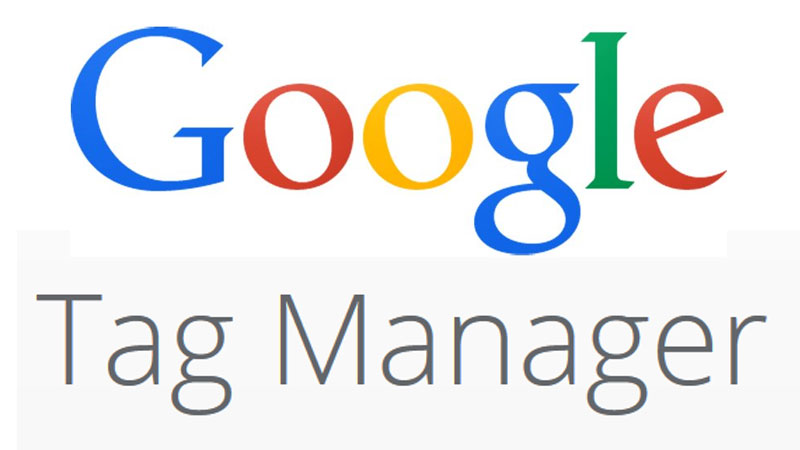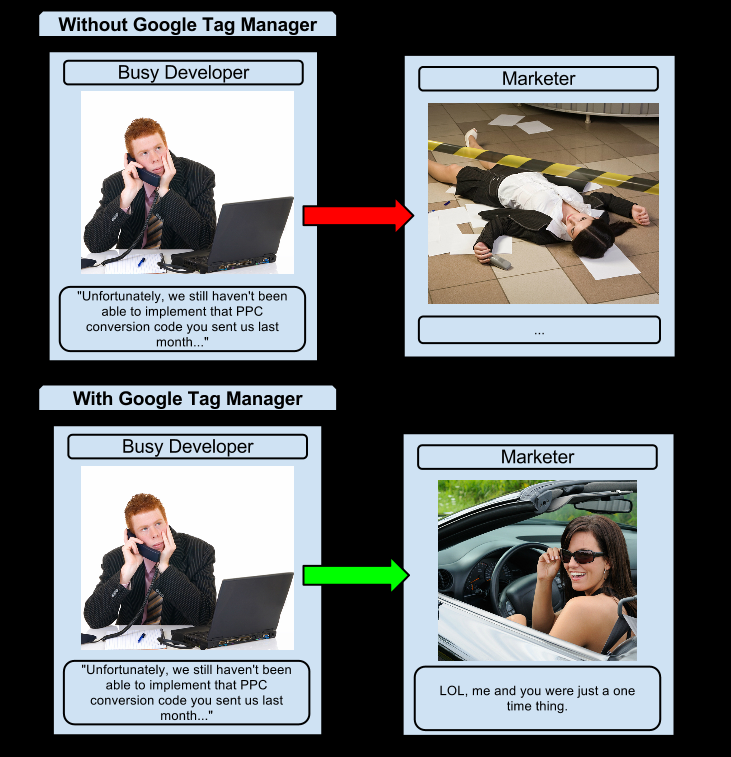
Benefits of Google Tag Management & Is It For You?
Google’s new tag management system offers a free way to centralize tag management for Adwords, Analytics and more. It was released in October 2012 and has many singing its praises.
While some marketers are labeling it a “heaven-send”, others are holding off on implementation.
Keep reading to learn the benefits of Google Tag Manager and determine whether it can help your organization.
What Is a Tag Management System – And is Google’s the First?
Tag management allows you to place a single snippet of code on your website and then manage which tags are fired from a separate web interface.
You can use that single snippet of code to implement Google Analytics, fire AdWords conversion codes, build custom codes and more!
Tag management systems have been around for years, but Google’s free tool integrates seamlessly with Analytics & Adwords, and will likely separate itself from the pack in the future. (Can you say track Analytics goals across domains with ease?)
Is Google Tag Manager For Me?
Ever worked at an agency or been an enterprise SEO and run into delays while trying to get tracking codes implemented? It can take weeks! I’m sure you start to shudder at just the thought of sending a new code to a client’s development team for a time sensitive PPC campaign.
You’re not alone. While the Internet is changing every second, businesses are often still operating on the twilight zone that is business time.
With Google Tag Manager you only need to have ONE CODE INSTALLED, ONE TIME! It takes the power to track data and places it right where it belongs—in the marketer’s hands.
You can use Google Tag Manager’s online interface to configure:
- Analytics
- Remarketing codes
- Conversion codes
- Analytics Events
- And more!
And all from one powerful online interface that you can manipulate and edit at any time without ever having to touch the backend of the site again.
You’ll only have to suffer through business time once, and then you can get to work doing what you do best.
And that’s just from the ease of use perspective. Let’s not forget how much cleaner your site’s code will be!
Great! So Is There Any Reason I Shouldn’t Use Tag Manager?
If you’re setting up tracking on a site from scratch, I can’t think of one. It’s simply too easy, efficient and convenient to go the tag management route.
But what if you’re working on a site that’s filled with existing remarketing and PPC conversion codes?
This will require a more involved set up. Not only will you have to install the Tag Manager code, but you’ll also have to migrate and remove your existing conversion codes over to tag manager.
Google says that you don’t have to migrate and remove existing conversion codes. If you don’t it becomes more likely that you’ll lose track of what conversions or events are firing where.
You’ll have to decide whether time you save in the future is worth the time it will take to do some conversion code spring-cleaning on your site.
How Can I Get Started With Google Tag Manager?
Head over to google.com/tagmanager and sign up to get started.
Need help managing your online marketing? Want to learn more about how to use Google’s tag management tool? Send us an email at [email protected] and let us know how we can help. You can also click here to complete a contact form.
Most newsletters suck...
So while we technically have to call this a daily newsletter so people know what it is, it's anything but.
You won't find any 'industry standards' or 'guru best practices' here - only the real stuff that actually moves the needle.








